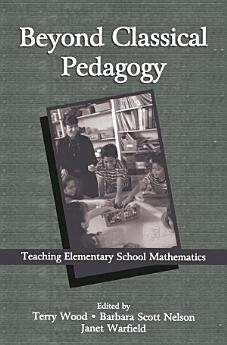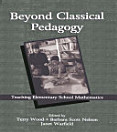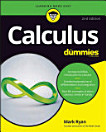Beyond Classical Pedagogy: Teaching Elementary School Mathematics
Terry Wood · Barbara Scott Nelson · Janet E. Warfield
Apr 2014 · Routledge
Ebook
324
Pages
family_home
Eligible
info
reportRatings and reviews aren’t verified Learn More
About this ebook
The emergence of the National Council of Teachers of Mathematics Standards in 1989 sparked a sea change in thinking about the nature and quality of mathematics instruction in U.S. schools. Much is known about transmission forms of mathematics teaching and the influence of this teaching on students' learning, but there is still little knowledge about the alternative forms of instruction that have evolved from the recent widespread efforts to reform mathematics education.
Beyond Classical Pedagogy: Teaching Elementary School Mathematics reports on the current state of knowledge about these new instructional practices, which differ in significant ways from the traditional pedagogy that has permeated mathematics education in the past. This book provides a research-based view of the nature of facilitative teaching in its relatively mature form, along with opposing views and critique of this form of pedagogy.
The focus is on elementary school mathematics classrooms, where the majority of the reform-based efforts have occurred, and on the micro level of teaching (classroom interaction) as a source for revealing the complexity involved in teaching, teachers' learning, and the impact of both on children's learning. The work in elementary mathematics teaching is situated in the larger context of research on teaching.
Research and insights from three disciplinary perspectives are presented: the psychological perspective centers on facilitative teaching as a process of teachers' learning; the mathematical perspective focuses on the nature of the mathematical knowledge teachers need in order to engage in this form of teaching; the sociological perspective attends to the interactive process of meaning construction as teachers and students create intellectual communities in their classrooms.
The multidisciplinary perspectives presented provide the editors with the necessary triangulation to provide confirming evidence and rich detail about the nature of facilitative teaching.
Audiences for this book include scholars in mathematics education and teacher education, teacher educators, staff developers, and classroom teachers. It is also appropriate as a text for graduate courses in mathematics education, teacher education, elementary mathematics teaching methods, and methods of research in mathematics education.
Beyond Classical Pedagogy: Teaching Elementary School Mathematics reports on the current state of knowledge about these new instructional practices, which differ in significant ways from the traditional pedagogy that has permeated mathematics education in the past. This book provides a research-based view of the nature of facilitative teaching in its relatively mature form, along with opposing views and critique of this form of pedagogy.
The focus is on elementary school mathematics classrooms, where the majority of the reform-based efforts have occurred, and on the micro level of teaching (classroom interaction) as a source for revealing the complexity involved in teaching, teachers' learning, and the impact of both on children's learning. The work in elementary mathematics teaching is situated in the larger context of research on teaching.
Research and insights from three disciplinary perspectives are presented: the psychological perspective centers on facilitative teaching as a process of teachers' learning; the mathematical perspective focuses on the nature of the mathematical knowledge teachers need in order to engage in this form of teaching; the sociological perspective attends to the interactive process of meaning construction as teachers and students create intellectual communities in their classrooms.
The multidisciplinary perspectives presented provide the editors with the necessary triangulation to provide confirming evidence and rich detail about the nature of facilitative teaching.
Audiences for this book include scholars in mathematics education and teacher education, teacher educators, staff developers, and classroom teachers. It is also appropriate as a text for graduate courses in mathematics education, teacher education, elementary mathematics teaching methods, and methods of research in mathematics education.
Chapter 5 of this book is freely available as a downloadable Open Access PDF at http://www.taylorfrancis.com under a Creative Commons [Attribution-Non Commercial-No Derivatives (CC-BY-NC-ND)] 4.0 license.
About the author
Terry Wood, Barbara Scott Nelson, Janet E. Warfield
Rate this ebook
Tell us what you think.
Reading information
Smartphones and tablets
Install the Google Play Books app for Android and iPad/iPhone. It syncs automatically with your account and allows you to read online or offline wherever you are.
Laptops and computers
You can listen to audiobooks purchased on Google Play using your computer's web browser.
eReaders and other devices
To read on e-ink devices like Kobo eReaders, you'll need to download a file and transfer it to your device. Follow the detailed Help Center instructions to transfer the files to supported eReaders.





